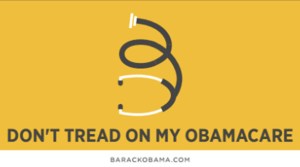Speaker of the House Paul Ryan, the zombie-eyed granny starver from the state of Wisconsin and Ayn Rand fanboy, had House members vote for ‘martial law’ waiver on one-day wait rule in hopes of speedy ACA repeal on Tuesday. “We don’t need to read no stinkin’ bill!”
There is also no Congressional Budget Office (CBO) score for the Zombie “Trumpcare” bill with the MacArthur Amendment and the eleventh-hour Upton Amendment. Congress does not know how this bill will affect health care coverage and cost for Americans, but most stakeholder medical organizations have warned that this bill is worse than “Trumpcare 2.0.”
UPDATE: In lieu of a CBO score, an overview of the expected effects of the GOP health-care bill.
To paraphrase the GOP attack line on Nancy Pelosi, “We have to pass the bill so that you can find out what is in it,” only this time this criticism is actually true.
House GOP leaders just announced the House to vote Thursday on ObamaCare repeal:
 The announcement sets up a high-stakes vote that is expected to come down to the wire.
The announcement sets up a high-stakes vote that is expected to come down to the wire.
The move comes after the bill gained new momentum on Wednesday, after GOP Reps. Fred Upton (Mich.) and Billy Long (Mo.) said they would support the bill after a new amendment from Upton.
Still, no lawmakers other than those two have publicly given their support since the announcement of the new amendment.
“We will be voting on the healthcare bill tomorrow. We have enough votes. It will pass. It’s a good bill,” House Majority Leader Kevin McCarthy (R-Calif.) said after leaving a leadership meeting Wednesday night.
Asked by a reporter about whether the bill would have to be pulled from the floor again for lack of support, McCarthy replied: “Would you have confidence? We’re going to pass it. We’re going to pass it. Let’s be optimistic about life.”


